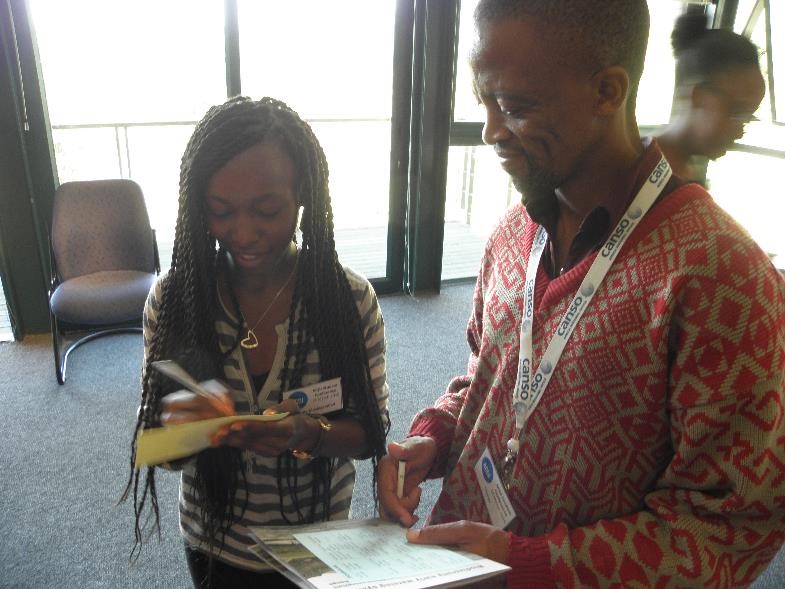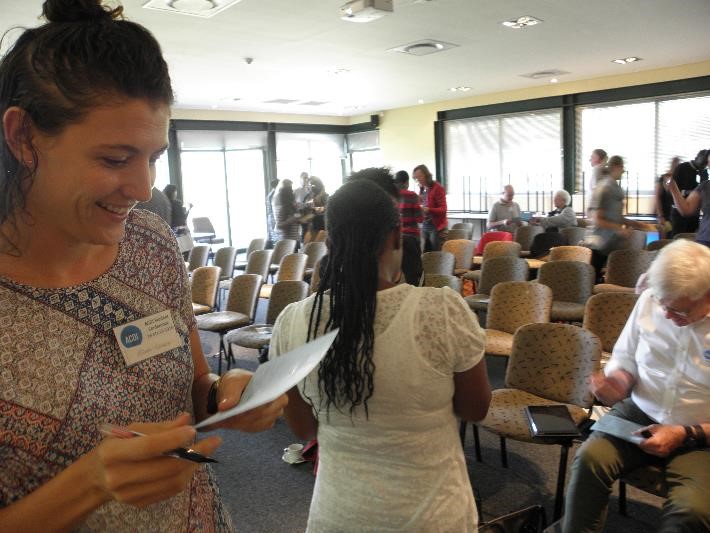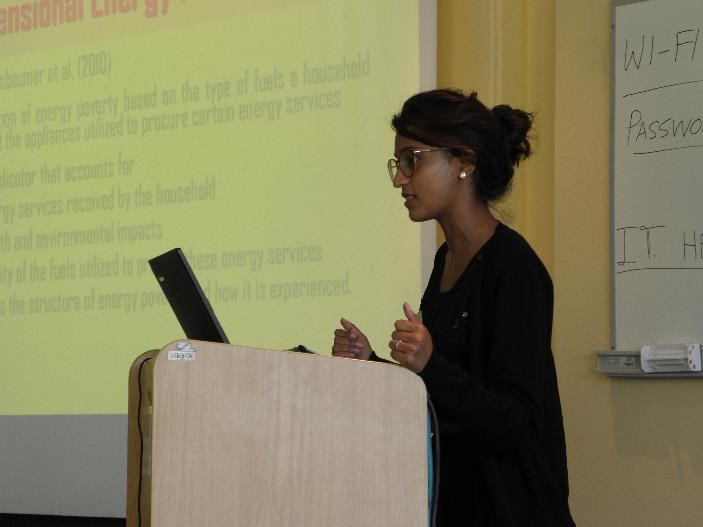ACDI Student Conference: A Glimpse At The Iceberg of Climate Change

By Roy Bouwer, 2016 ACDI master's student
“Planet Earth is the Titanic, climate change the iceberg”
* Paul B. Farrell, Market Watch, 17 Feb 2015
In an opinion piece on Market Watch last year, Paul Farrell described the earth as the Titanic and climate change as the iceberg which will inevitably sink the ship. The comparison between our home planet and the supposed “unsinkable ship” which saw the very demise which it was meant to be guaranteed to withstand paints a rather pessimistic picture. However, looking at climate change as a daunting threat the extent of which we are only aware of in a small portion, makes this description rather fitting.
Every year we learn more and more about the massive complex phenomenon that is climate change and while there is so much information out there, what we don’t know and have yet to discover is far greater than the amount we do know. Sticking to this iceberg metaphor, the second annual ACDI Student Conference held at Kirstenbosch on March 18th, 2016 was a quick glance at the new research exposing new aspects of this climate change “iceberg” while at the same time barely scratching the surface.
The Different Layers Of The Iceberg
As individuals in our respective fields I think we tend to forget that there are individuals in other fields all working on something very similar to our own work, and that there is a massive amount of relevant information existing from many different sources. The ACDI lives by the vision of creating a cooperative relationship between all these sources of knowledge to create a shared understandings and shared goals. This ACDI Conference brought together students and academics from across UCT and beyond to facilitate this co-operative knowledge sharing to create this common understanding and goal.
The conference opened with ACDI director Mark New giving some context on the course of sustainability which South Africa is currently on by considering our planetary boundaries and the National Development Plan. Following this introduction the speakers presented a complexity of issues relating to climate change. While session one dealt with presentations on species patterns and climate modelling, session two looked at various issues related to climate change, poverty and development.
Despite the separation of the biophysical science and social sciences, it was evident that neither of these can stand alone and the results from research gain strength when they can be linked with other research.
Networking
While the main aim of the conference was to give students the opportunity to present their work in a conference setting, as with all conferences the opportunities for networking with scientists and experts from a variety of fields played almost an equally important role.
Along with informal mingling time, there was some scheduled activities for networking. Climate Change Bingo was the ice breaker which got you working around the room looking for the attendees with whom to share all the crazy stories and anecdotes. A frenzied round of climate change speed dating also allowed attendees to share details about themselves in one minute intervals. The conference was a great means for students to get to know the playground of networking in the academic setting.



Images: Bingo Ice-breaker at the ACDI student conference got everyone chatting.
Innovation Takes The Prize
Although the spirit of the conference was for students to share their research, there was an element of competiveness with the prize of funding to attend a larger conference up for grabs. With every speaker having presented relevant and interesting research, the judging panel had their work cut out for them, but at the end of the day the speaker with the most innovative research methods won the prize for the best presentation.
The winner, Kimenthrie Pillay, with her topic: Crowd-sourcing Energy Poverty Data in South African Informal Settlements: The Opportunity of Mobile Phone Technology demonstrated an exciting new way to approach data collection from residents in informal settlements by using surveys on smart phone apps and mobile web pages and rewarding participants with airtime. Although I think this kind of research method may be heavily dependent on rewarding participants for completing surveys, the idea that data could be collected remotely with new technologies which provide real-time data analysis could open up so many doors for future climate change research.

Image: Kimenthrie Pillay speaking at the second annual ACDI Student Conference.
The Take Home Message
Fittingly, the last speaker of the day was Penny Price who presented a talk entitled: The Importance of Knowledge Exchanges in the Tough Decision Making Space of Climate Adaptation. This talk really echoed the goal for the conference to bring scientists and academics together to share their knowledge in order to create a common awareness. Climate Change is an extremely complex issue for which there is no one answer. In order to be able to work towards a sustainable trajectory knowledge needs to be created in a way which combines the new and existing knowledge from all disciplines and stakeholders.
Looking at Phytoplankton diversity seems insignificant on its own but when we make connections between this research and knowledge from other fields, we can better understand the interactions between communities and ecosystems and this guides us as on how human’s should be adapting to climate change. As climate scientists we should be dedicating a lot of our focus on exposing ourselves to as much of this “iceberg” of climate change as we can because of the great potential that combining knowledge has towards dealing with the challenges we face in light of climate change. Even though we may never end up knowing and understanding the entirety of climate change, knowledge sharing may be the key to covering as much ground as possible.
Reference:
Farrell, Paul. 2015. Opinion: Planet Earth is the Titanic, climate change the iceberg. Market Watch. Available: http://www.marketwatch.com/story/planet-earth-is-the-titanic-climate-change-the-iceberg-2015-02-13. Accessed 20 March 2016.
Disclaimer: The views expressed here are solely those of the author in his private capacity